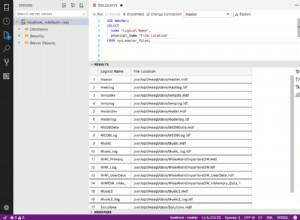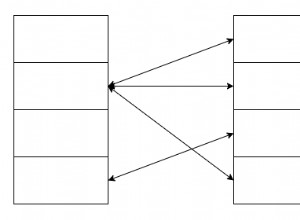Jeden sposób (z wielu), aby to zrobić:Usuń resztę ciągu rozpoczynającego się od dopasowania i zmierz długość skróconego ciągu:
SELECT id, title
FROM book
WHERE title ILIKE '%deep%space%'
ORDER BY length(regexp_replace(title, 'deep.*space.*', '','i'));
Korzystanie z ILIKE w klauzuli WHERE, ponieważ jest to zwykle szybsze (i robi to samo tutaj).
Zwróć także uwagę na czwarty parametr regexp_replace() funkcja ('i' ), aby wielkość liter nie była rozróżniana.
Alternatywne
Zgodnie z prośbą w komentarzu.
Jednocześnie demonstrując, jak sortować dopasowania najpierw (i NULLS LAST
).
SELECT id, title
,substring(title FROM '(?i)(^.*)deep.*space.*') AS sub1
,length(substring(title FROM '(?i)(^.*)deep.*space.*')) AS pos1
,substring(title FROM '(?i)^.*(?=deep.*space.*)') AS sub2
,length(substring(title FROM '(?i)^.*(?=deep.*space.*)')) AS pos2
,substring(title FROM '(?i)^.*(deep.*space.*)') AS sub3
,position((substring(title FROM '(?i)^.*(deep.*space.*)')) IN title) AS p3
,regexp_replace(title, 'deep.*space.*', '','i') AS reg4
,length(regexp_replace(title, 'deep.*space.*', '','i')) AS pos4
FROM book
ORDER BY title ILIKE '%deep%space%' DESC NULLS LAST
,length(regexp_replace(title, 'deep.*space.*', '','i'));
Dokumentację wszystkich powyższych informacji znajdziesz w instrukcji tutaj i tutaj .
-> SQLfiddle demonstrując wszystko.




